How the Government Can Legally Take Your Property (and What You Can Do About It)

It sounds like something out of a movie — but it’s real:
The government can legally take private land for public use, and sometimes, there’s little you can do to stop it.
I’m Tiffany Webber, a real estate attorney in Lake Norman, and I’ve personally been through the process of having my property taken through eminent domain.
Here’s what you need to know about how it works — and how you can protect yourself.
What Is Eminent Domain?
Eminent domain is the government’s right to take private property for a legitimate public use — like roads, utilities, or infrastructure projects.
But there are strict requirements:
-
The project must have a legitimate public purpose.
-
There must be no reasonable alternative to taking private property.
-
Property owners must receive just compensation.
If you’re facing a situation like this while buying or selling real estate in North Carolina, it’s important to understand that you have rights — but also limits.
How the Eminent Domain Process Works
Here’s how it typically unfolds:
-
Planning happens behind the scenes
Before you even hear about the project, the government has usually completed surveys, engineering studies, and alternative exploration. -
Notice is given
You’ll receive official notice that a project is coming and that your property may be affected. -
You receive an offer
The government must offer you a “fair and reasonable” price for the land they want to take.
Important: You do not have to accept the first offer. -
Negotiation begins
You can negotiate directly or hire an attorney who specializes in eminent domain to help you fight for a higher amount.
Many eminent domain attorneys work on contingency — meaning they only get paid if they secure you more money than the initial offer. -
Condemnation action if no agreement is reached
If you and the government can’t agree, they can file a condemnation action in court.
The government deposits their original offer amount with the court — guaranteeing you won’t get less — but litigation or settlement negotiations continue to determine the true value.
What Happens If You Reject the Offer?
Rejecting the first offer doesn’t stop the project.
The government can still take your land if they follow the correct legal process.
The main battle becomes how much they’ll pay you.
If you reject their initial offer:
-
You can continue negotiating.
-
You can pursue litigation to argue for a higher valuation.
-
You might win additional compensation through court proceedings.
Pro Tip:
If your case proceeds to a condemnation lawsuit, it’s smart to work with an experienced attorney.
Legal battles over property value require:
-
Discovery
-
Depositions
-
Civil court procedures
(And let’s be honest — most of us don’t want to handle that alone.)
Can You Ever Stop the Taking?
Rarely.
In most cases, courts side with the government if they prove the project serves a public use.
However, there have been exceptions where:
-
The taking wasn’t truly for public benefit, or
-
There were other ways to accomplish the project without private land seizures.
Stopping an eminent domain action entirely requires serious legal firepower — and a lot of evidence.
Key Takeaways for Property Owners
If you get an eminent domain notice: ✅ You are entitled to just compensation.
✅ You do not have to accept the first offer.
✅ If you disagree on price, negotiation and litigation are options.
✅ Hiring an attorney can dramatically improve your outcome.
Closing Soon? Protect Your Interests With a Trusted Team
Whether you’re buying or selling property in North Carolina, you need experienced professionals who understand the system — and who are on your side.
At Thomas & Webber, we guide clients through every stage of real estate transactions and property rights issues.
👉 Need a team that protects your interests at the closing table?
Send your contract to [email protected] — and let’s close with confidence.


